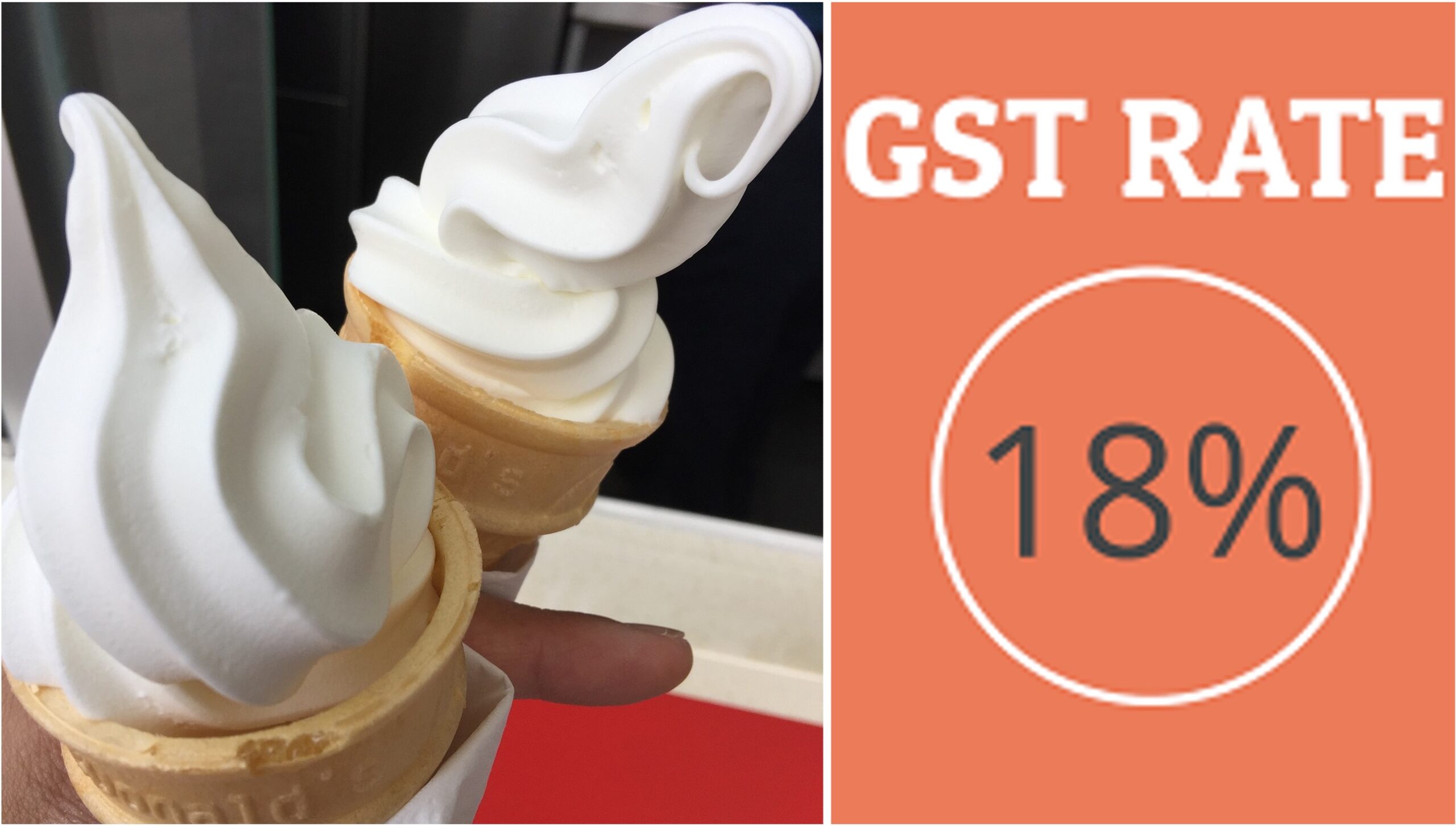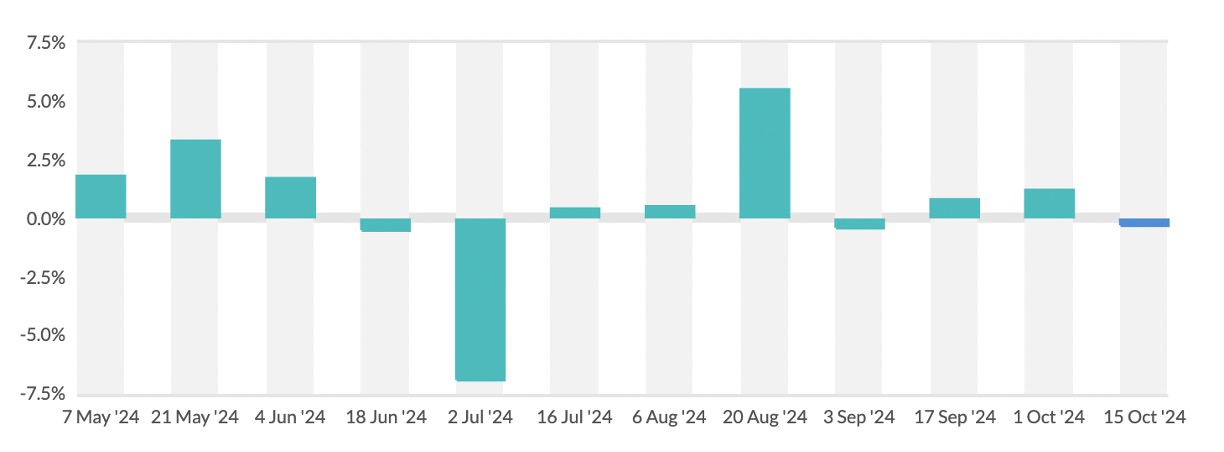The plant-based ingredients sector is undergoing a transformative evolution, driven by a significant shift in consumer preferences and innovative advancements within the industry. Historically overlooked by investors who perceived it as a mere commodity sector, the burgeoning plant-based ingredients market is now being recognized for its immense potential for value-added expansion and wealth generation.
According to a recent report titled “From Roots to Riches: Creating Wealth with Plant-Based Ingredients!” by Asit C. Mehta Investment Interrmediates (ACMIIL), n today’s fast-paced world, consumers are increasingly scrutinizing what they consume, paying meticulous attention to the ingredients in their food, its nutritional value, and its caloric content.
The rise in popularity of plant-based specialty products, ingredients, and their derivatives is a testament to this trend. These products have found their way into various categories, including ready-to-eat and ready-to-cook meals, frozen and packaged foods, spreads and sauces, baked goods, desserts, ice creams, confectioneries, and more. Plant-based products serve diverse roles in these foods, functioning as sweeteners, thickening agents, stabilizers, emulsifiers, and more.
The Indian Market
India, a land known for its tradition of ‘ahimsa’ and vegetarianism, has seen a rapid rise in the plant-based product business in recent years. Although the concept of plant-based eating is deeply rooted in Indian culture, the commercial sector has only recently gained significant momentum. The export market for India’s plant-based sector is expected to expand substantially by 2030, marking its emergence as a burgeoning industry with enormous potential. Traditionally, the global food industry has relied heavily on animal-based and chemical-based products, but the tide is turning, and plant-based products are gaining prominence.
Capitalizing on India’s Expanding Plant-Based Market
Investors can capitalize on this structural shift, benefiting from the expanding market and premium pricing of plant-based products. Notably, the export market for India’s plant-based sector is projected to expand substantially by 2030. Manorama Industries stands as a solid example of the sector’s potential, delivering 16x returns since its listing in 2018. Such success stories show how companies focusing on specialty plant-based products can generate substantial wealth while contributing to a more organic and vegan world. Some of the notable companies operating in the plant-based ingredients industry include Adani Wilmar Ltd, Sanstar Ltd (proposed IPO), Manorama Industries Ltd, Food & Inn, Gujarat Ambuja Exports Ltd, etc.
The Global Market
Globally, the plant-based ingredients market size was approximately $60.71 billion in 2022, with projections indicating it will reach $120.74 billion by 2029, expanding at a compound annual growth rate (CAGR) of 10.32 percent over these seven years. This growth is underpinned by increasing consumer awareness of the environmental and health impacts of their food choices, propelling the shift towards plant-based alternatives. India’s sizable vegetarian population (about 30 percent) and growing awareness of the health and environmental benefits of a plant-based diet further underscore the promising future for this sunrise sector.
Devang Shah, Head of Retail Research, ACMIIL, emphasized the potential of the plant-based ingredients market, stating, “The plant-based ingredients market represents a paradigm shift towards vegetarian, vegan, and organic natural products. Investors who recognize and seize this chance will not only benefit from substantial financial returns but also contribute to a more sustainable future.”
Diverse Applications Across Industries
- Food and Beverages
Plant-based ingredients are revolutionizing the food and beverage industry. Soy-based products, such as tofu, tempeh, and textured vegetable protein (TVP), are increasingly popular as meat alternatives due to their high protein content and versatility. Corn-based products, including corn syrup and maize starch, play significant roles as sweeteners and binding agents in various foods. Fruit pulp, prized for its rich flavor and nutritional content, is widely used in juices, smoothies, desserts, and dairy products. Additionally, rice bran oil is favored for its high smoke point and beneficial nutritional profile, commonly used in cooking and frying.
- Cosmetics and Personal Care
The cosmetics and personal care industry has embraced plant-based ingredients for their beneficial properties. Corn oil is incorporated into soaps for its moisturizing effects, while fruit pulp is utilized in skincare and haircare products for hydration and exfoliation. Cocoa butter equivalents (CBEs) are valued in skincare for their emollient properties, and rice bran oil is used in lotions and creams for its nourishing qualities.
- Pharmaceuticals
In the pharmaceutical sector, maize starch and its derivatives are essential as sweeteners and binding agents in medicines, ensuring even distribution of active ingredients. CBEs are also used in the formulation of medicated candies and lozenges, enhancing texture and mouthfeel.
- Other Applications
Beyond food, beverages, cosmetics, and pharmaceuticals, plant-based ingredients find applications in the production of adhesives, paper, textiles, biodiesel, and certain insecticides. This wide-ranging utility highlights the versatility and importance of plant-based ingredients across various industries.
Market Opportunities and Key Demand Drivers in India
The plant-based product market in India is poised for rapid development over the next decade, driven by rising consumer interest, product innovation, and substantial investments from domestic and foreign private sectors. To fully exploit this market potential, businesses need to adopt cutting-edge strategies, such as leveraging technology to boost production efficiency and implementing cost-cutting measures. Additionally, the rich culinary heritage of India offers opportunities to create authentic and unique plant-based products that appeal to both domestic and international consumers.
- Increased Health Consciousness
The booming market for plant-based products is fueled by consumers seeking sustainable and healthy dietary options. India’s young population is particularly health-conscious and environmentally aware, driving demand for plant-based product options.
- Lactose-Intolerant Population
The prevalence of lactose intolerance has propelled the popularity of plant-based dairy alternatives, such as almond milk, soy milk, and tofu, offering consumers a viable option without compromising on taste or nutrition.
- Expansion of Distribution
To unlock the full potential of the plant-based market, businesses must create mass awareness, expand distribution networks, and develop an adequate product mix.
- Improved Product Innovation
Plant-based product firms have the opportunity to innovate and create products that meet consumers’ taste, texture, and flavor expectations. Key growth drivers include enhanced R&D facilities, expanded distribution networks, higher manufacturing capacity, and raw material availability.
- Urbanization
India’s urban population is projected to grow significantly by 2030, creating a sizable market for plant-based foods. Urban consumers are increasingly concerned with their health and favor plant-based protein alternatives.
- Abundance of Raw Materials
India’s rich agricultural landscape provides a variety of raw materials for plant-based products, contributing to lower production costs and more affordable end products.
- Nutritional Requirements
A well-planned and varied plant-based diet can meet an individual’s daily nutritional needs, offering essential nutrients through whole grains, legumes, nuts, seeds, and fortified foods.
- Export Opportunity
India’s strong vegetarian and vegan culinary tradition offers a unique opportunity for exporting plant-based adaptations of traditional meals. The government’s efforts to market India as a destination for investment in the food processing industry further bolster export potential.
A Sustainable Future with Plant-Based Products
The global shift towards sustainability, ethical consumption, and health consciousness is driving increased preference for plant-based products across various industries. This transition represents a fundamental change in business operations and consumer choices, with significant benefits for the environment, economy, and society.
Plant-based products offer a sustainable alternative to chemical-based and animal-derived products, reducing ecological footprints, promoting biodiversity, and ensuring a sustainable future.
The adoption of plant-based products can boost employment, especially in agrarian economies like India, creating job opportunities and supporting rural communities.






























